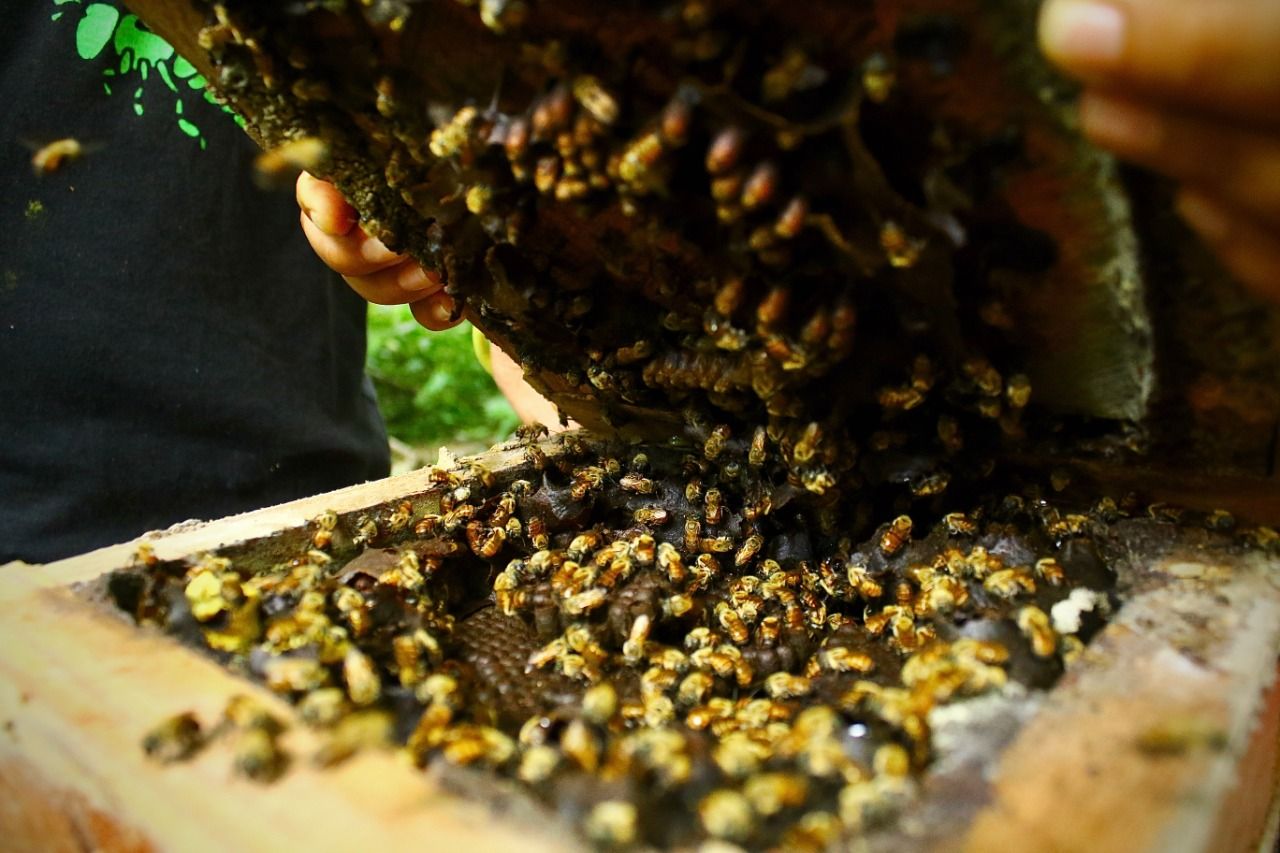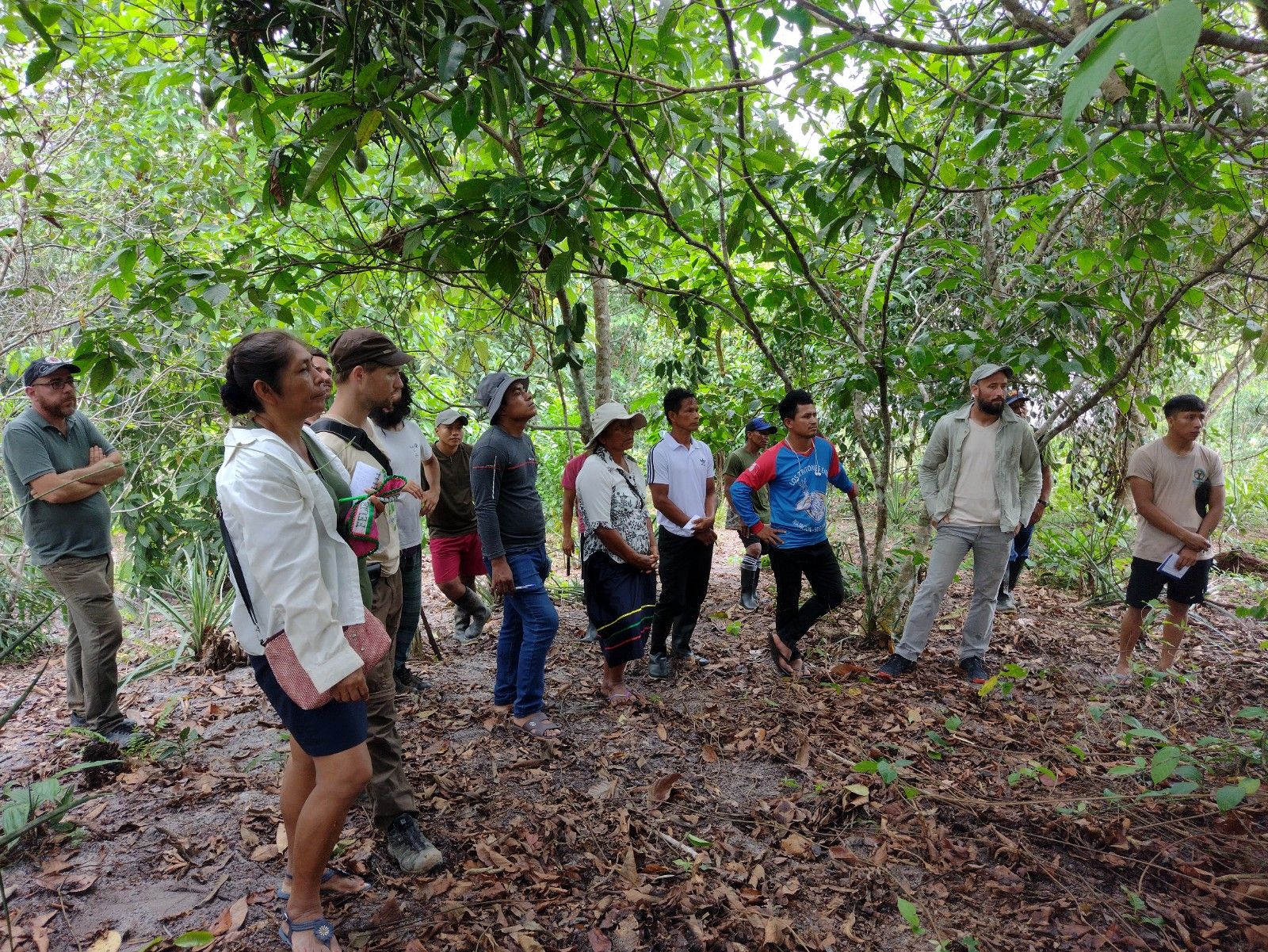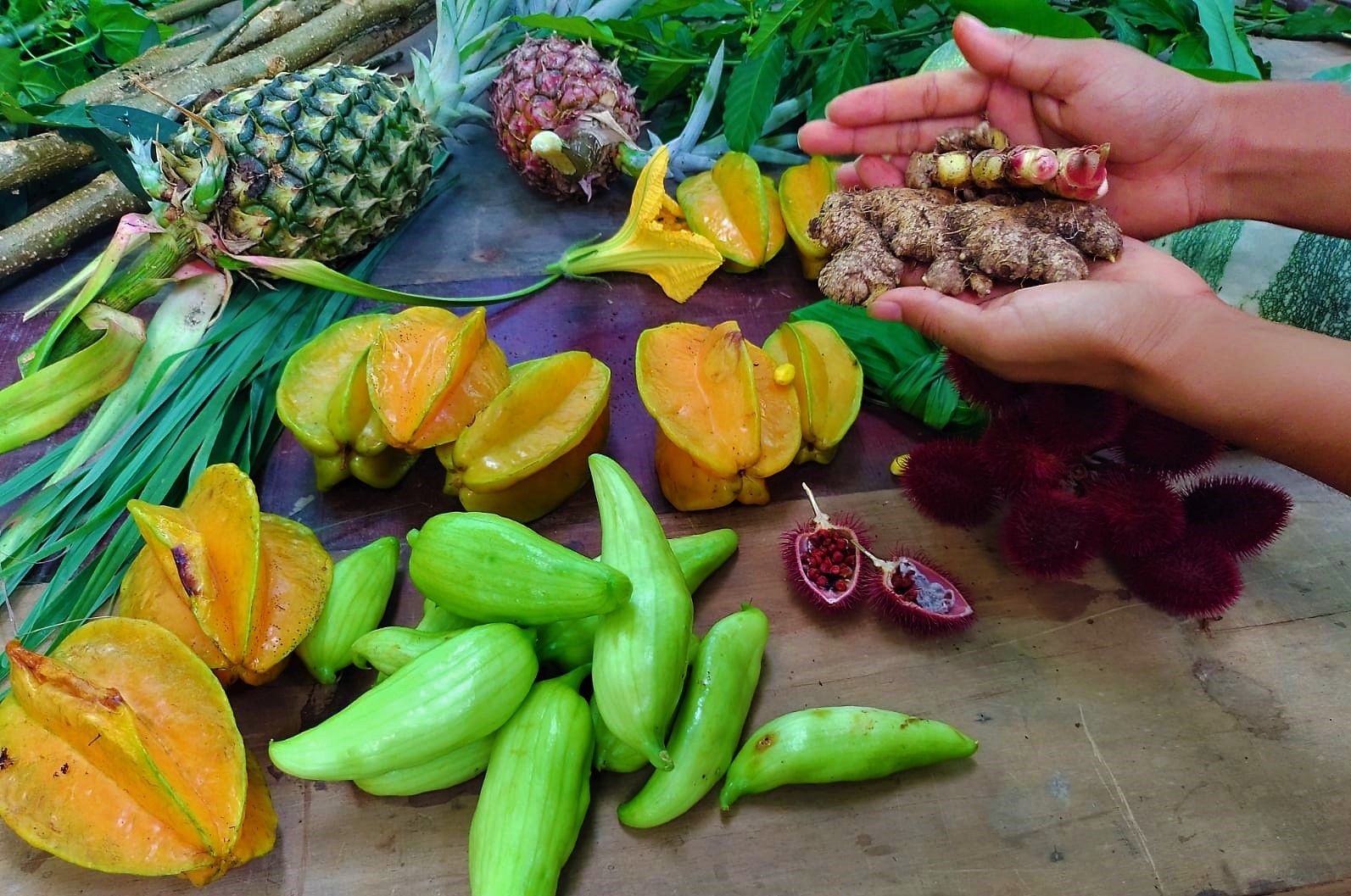By
From December 3rd to 5th, we held our first Diálogo de Saberes (wisdom, or knowledge dialogue) at our Permaculture Center, situated in the lower Nanay River Basin outside of Iquitos. One of the biggest and most important events in the history of our Institute, this gathering brought together indigenous elders, wisdom keepers, students, community members, agroforestry experts, and other local allies. For three consecutive days, approximately 50 participants exchanged experiences and profound knowledge on ancestral forest farming practices and the control and management of Indigenous territories.
Diverse agroforestry and ancestral forest farming practices for food sovereignty and buen vivir (good living)
The first day was dedicated to exchanging experiences on forest farming. We started by visiting the local farm of Levi and Ruth, villagers from our neighboring community, Tres Unidos. Levi has been attending permaculture trainings with the Chaikuni Institute for the past 4 years. Gathered outside of his house, our group was able to identify no less than 16 different fruit trees from where we stood. Levi has enthusiastically embraced the chacra integral system that Chaikuni has been promoting – an agroforestry system based on local and ancestral knowledge that advocates diversity, no-burning, and the integration of medicinal plants like ayahuasca. Today, Levi tells us, “I can´t really understand anymore why I used to burn down the forest.”
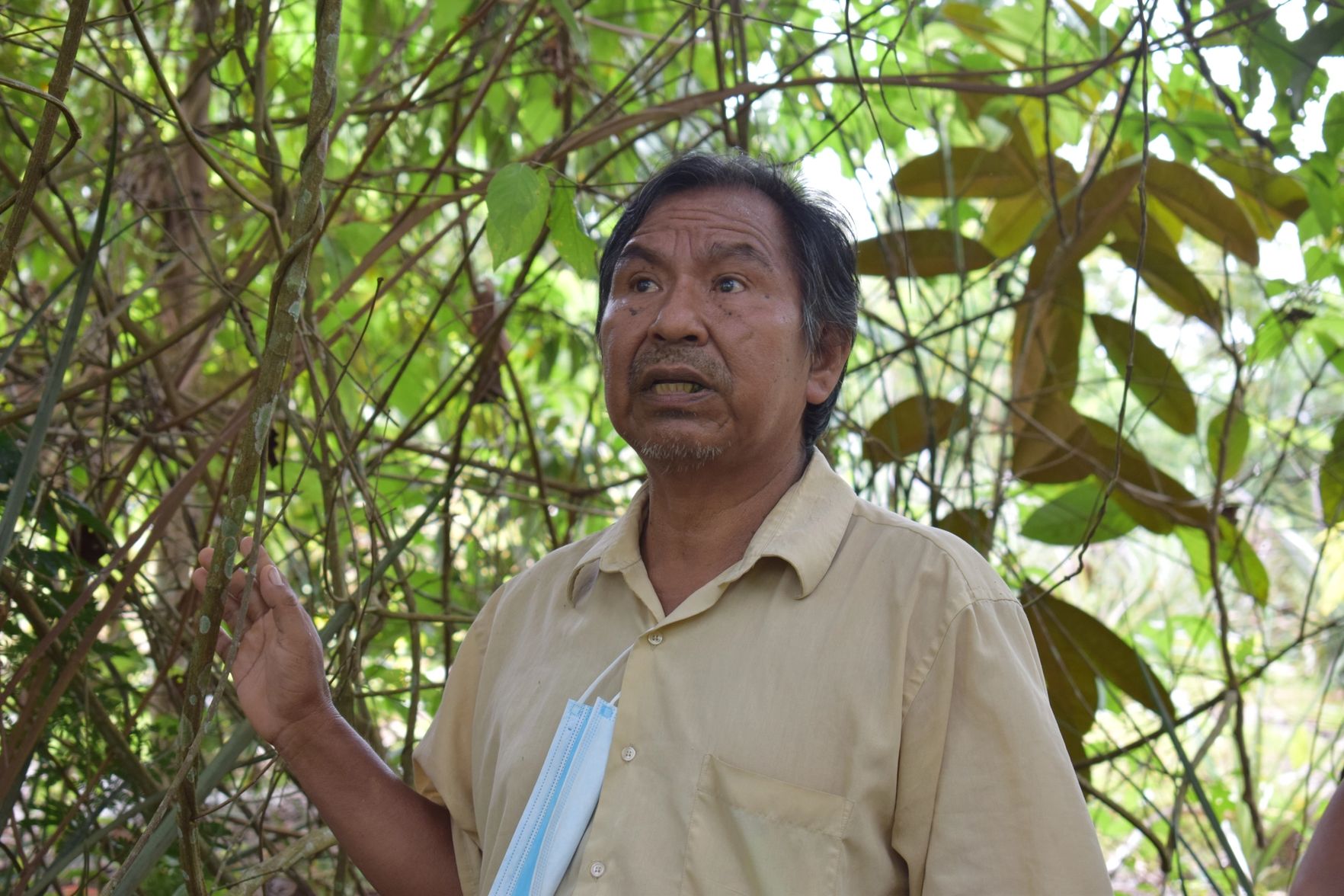
Back at the Permaculture Center, we held a brief session explaining Chaikuni´s chacra integral system in more detail. The main objective of the system is to strengthen food sovereignty for local families and communities. Once family needs are taken care of, surplus can be sold to generate income. The ayahuasca vine, which can be harvested starting from year 5, holds large potential to generate extra income, as do fruit and timber trees. In addition, the chacra integral creates multiple benefits for the environment, including soil regeneration, reforestation, and climate mitigation, and enhances biodiversity.
Our friends from Camino Verde, an NGO based in the southern Peruvian Amazon, also presented their work with communities where they implement a similarly diverse agroforestry system, which centers around the cultivation of rosewood (Aniba rosaeodora). Rosewood is valued for its essential oil, used in the perfume industry. In the second half of the 20th century, the rosewood tree was overexploited to a point where it almost became extinct. Bora representatives from the Nuevo Brillo community in the Pevas area from further down the Amazon River told of their experiences with rosewood cultivation, and how it generates extra income for their families.
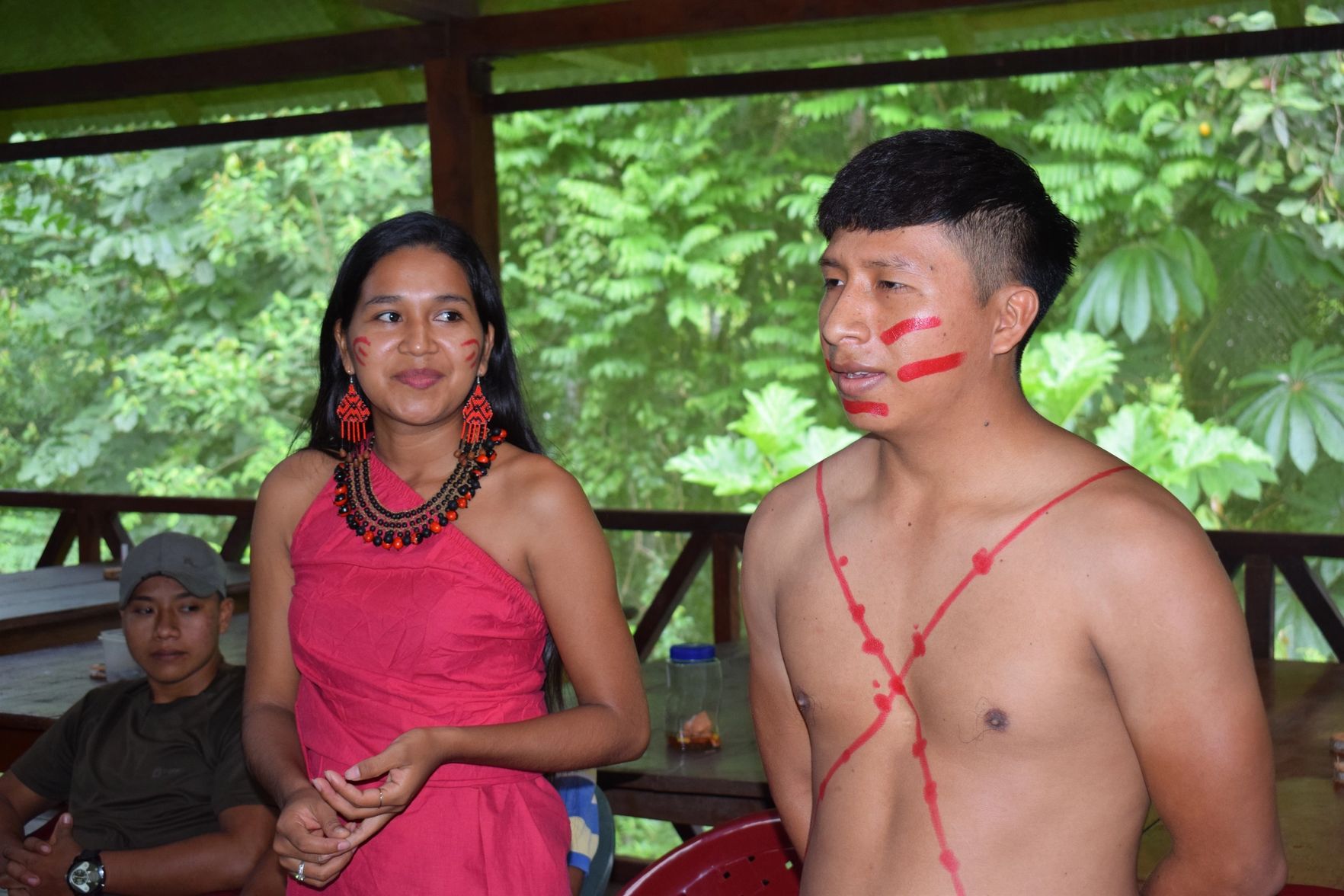
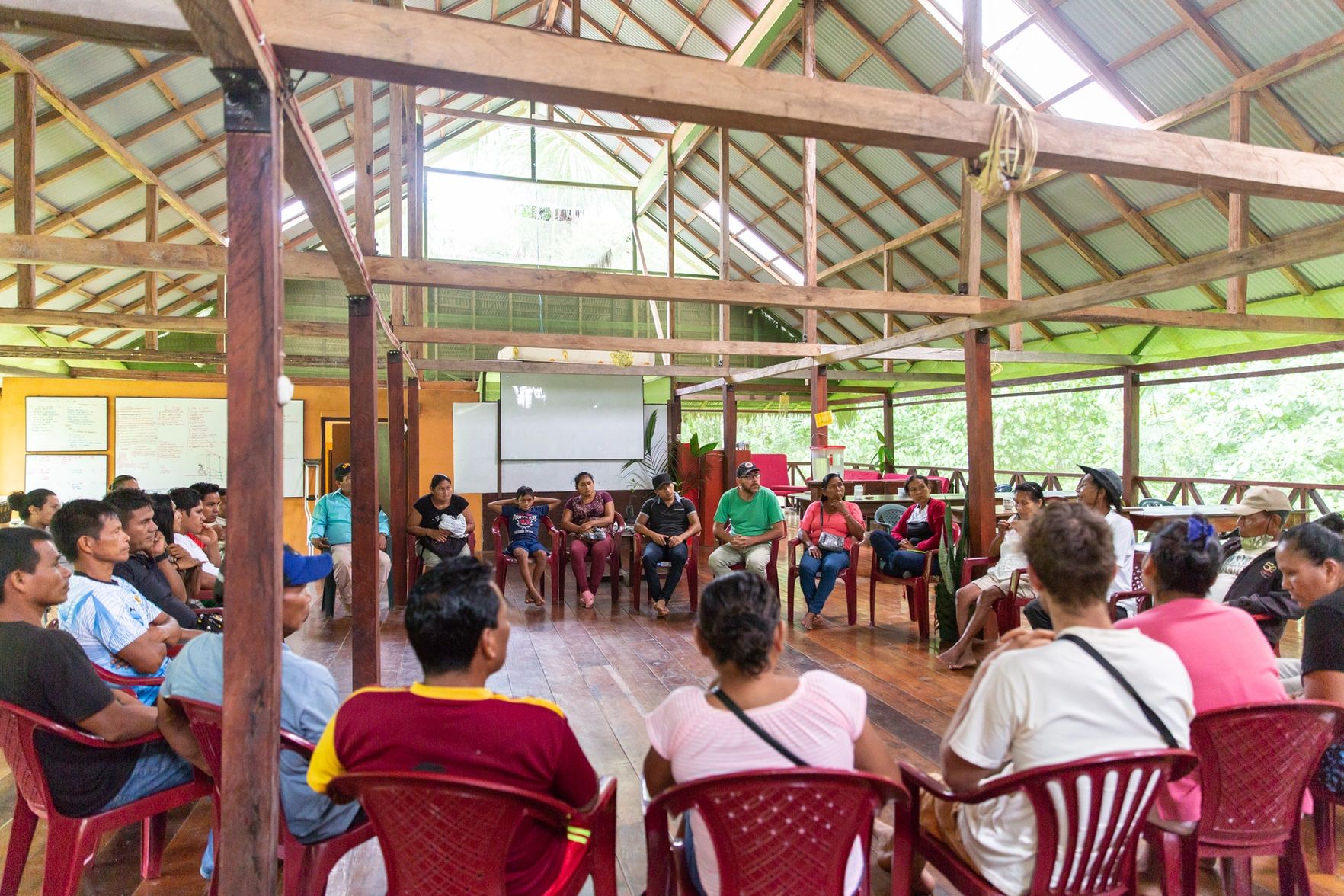
Safeguarding and (re)valuing ancestral knowledge systems
In the sharing session that followed, Bora elders Manuel and Yolanda, recounted their traditional ways of organizing chacras. Their knowledge exposed deep ecological insight, a clear order and practical wisdom on forest farming, with crop diversity being of primary importance. While they traditionally did burn some of their fields, they also specifically practice no-burning agriculture for other crops. Kukama women and Maijuna and Kichwa representatives joined in to share their stories about traditional forest farming in their communities. A rich dialogue developed that continued when visiting Chaikuni´s agroforestry demonstration sites, where very practical knowledge was shared. Participants also exchanged seeds brought from their villages and took home new plants, seedlings, and ayahuasca shoots from our center.
The evening discussion circle brought about reflections on how traditional knowledge and practices have become increasingly less valued in the communities. Participants shared how Indigenous communities themselves start to think less of their knowledge systems after having been told from the dominant society for decades that their value systems and knowledge are “outdated” or “backward,” and that they would need to adopt “modern” agriculture if they want to increase yields. Through lively discussions, a consensus emerged that there is a need to revalorize these traditional and ancestral wisdoms and a need to commit to go back to teaching their children. The group also concluded that traditional and academic knowledge are mutually strengthening.
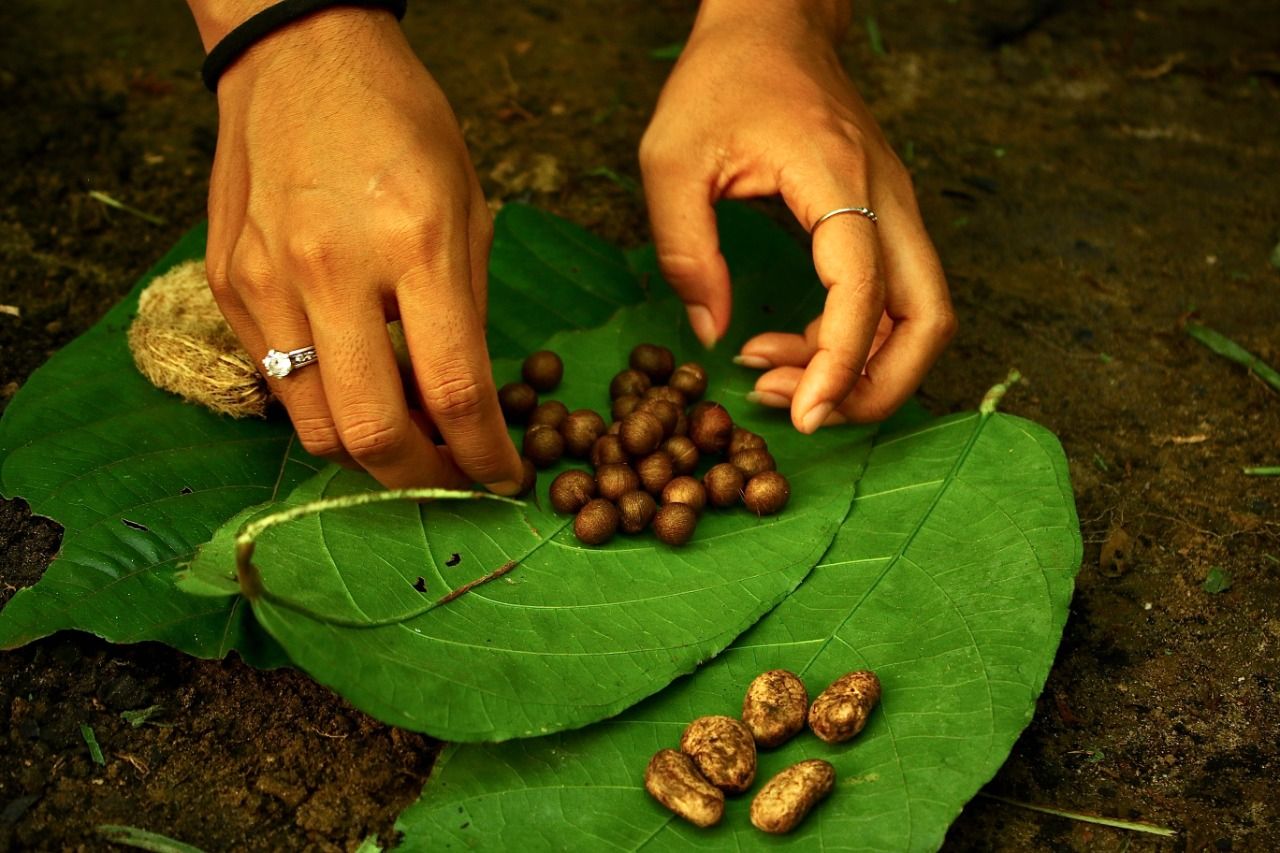
Territorial control
Within the same project that financed our agroforestry work and the Dialogo de Saberes event, Chaikuni has been working with its four neighboring communities on land use planning and territorial control over the past two years. The second day had a focus on the notion of territory, the importance of local control, and how to deal with threats.
Two Kichwa representatives from the Tigre River, an area that is heavily impacted by half a decade of oil exploitation, spoke about their experience on how they organized an Indigenous-led environmental monitoring program over ten years ago. They shared how this helped the immense socio-environmental impact the Kichwa people are suffering through recognition and visibility.
The Maijuna participants spoke about a road project that is planned to cut directly through their ancestral territory, and how it threatens their natural resources and their very survival. The Maijuna have long been mobilizing against this project, looking for allies and alternatives. Among others, they have produced the documentary “Guardians of the Forest” to amplify their voices.
The discussions reached a conclusion that effective territorial control generally starts with strong communal organization and cohesion.
Initiatives that foster buen vivir in Amazonian communities
As a local NGO based in the heart of the Amazon, implementing projects directly with local communities, we have experienced the challenge of creating initiatives that foster buen vivir in Amazonian communities firsthand. We have seen that only a small percentage of “development” projects are successful; most projects only accompany communities for a short time, and build their intervention on instable premises, achieving very few positive impacts.
At the Chaikuni Institute, we have been investigating this for some time and are learning from common mistakes (see, for example, some conclusions in this paper written for the Sacred Headwaters Initiative). The intimate exchanges from the Dialogo de Saberes supported our perspective that projects need not only come from initiatives from local communities themselves if they are to be successful. They are also most effective when based on local preexisting knowledge that values the rich and diverse knowledge systems of Indigenous peoples, as opposed to introducing or imposing complicated (and often destructive) outside technology.
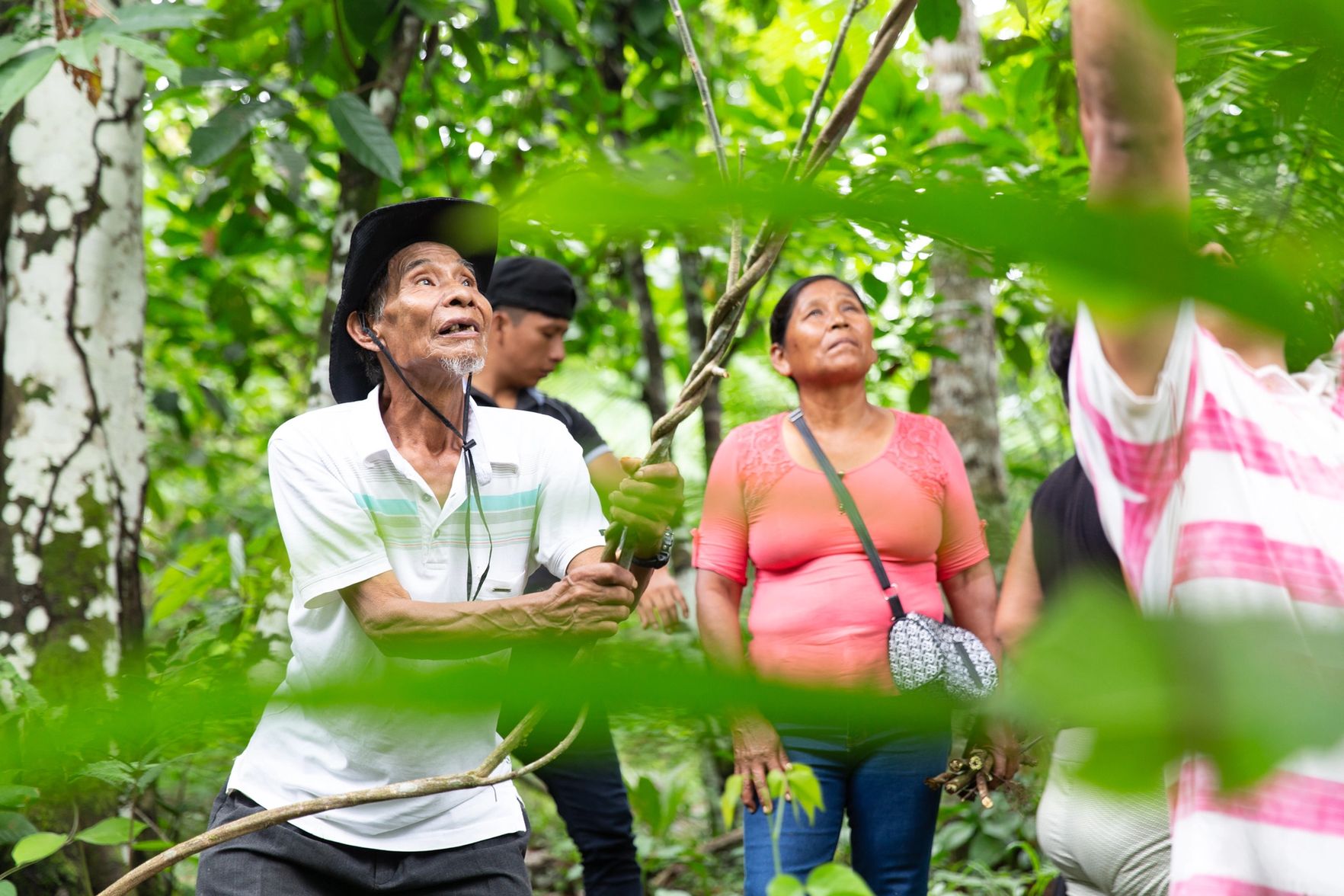
Continuing the dialogue and partnerships
The three days were truly inspiring, both in the knowledge shared, as well as in the intimate atmosphere where personal experiences and deep eco-cultural knowledge across more than six different Amazonian Indigenous peoples, Peruvians, and international participants was shared. Participants left with a renewed enthusiasm for their ancestral knowledge, the new ideas generated during the gathering, and the desire to deepen the exchange between the different indigenous groups and institutions that participated in the gathering. Deeply excited and inspired, we are committed to continue facilitating these powerful intercultural knowledge exchanges.
